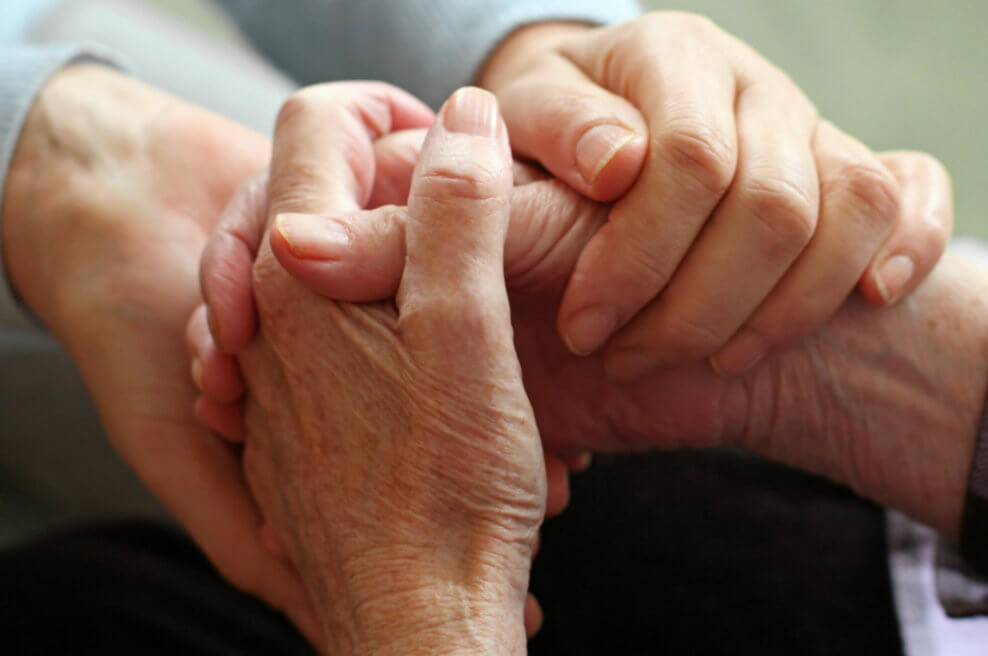
How do you help someone in an abusive relationship? Eve offers some advice.
Over the past week, stories of high profile men abusing their power sexually have cropped up again and again. Sen. Matt Gaetz is being accused of having sex with a minor (which means, raping a minor). Phillip Roth biographer Blake Bailey is accused of multiple instances of grooming female students when he was a middle and high school teacher and then raping them later, and TLC’s 19 Kids and Counting star Joshua Duggar has been charged with possession of child pornography (several years after being accused of molesting his younger sisters).
As these kinds of stories pop up over and over, the evergreen question of how to support those trapped in an abusive relationship arises in the discussion of these situations. What can be done to help someone who isn’t ready to leave their abuser, but who may need rapid and thorough support when the time comes? What can be done to help women like Anna Duggar get out and get themselves and their children to safety?
‘A Few Things’
To support someone in an abusive relationship, a few things must be known. First of all, many people are easily trapped in a cycle of conflict, repair, and forgiveness. Someone expressing the desire to leave an abusive relationship during the conflict phase may be easily sucked back in and change their minds, hoping that things will get better and stay better.
Remaining sympathetic and aware of this process will help build trust with the victim. They will be less likely to open up about what’s going on to someone who is pressuring them to leave. The average number of attempts to leave an abusive relationship before successfully escaping is seven. Keep this in mind and be patient with the process. Rushing it can put the victim at elevated risk of violence, so being slow and cautious is the safest way out (usually).
Listening without judgement or pressure is the first step of practical support. Helping them document the abuse is the second thing.
Abusers can control access to friends and family, stalk their victim’s social media accounts or go through their phones. It can be risky for a victim to document the abuse on their own devices. Offering to be a receptacle of evidence with a guarantee that nothing will be done with it without the victim’s express consent is a practical way to support your friend.
They need to know that there will be no consequences for sharing this information with you and that it will be safely stored for them if they want to use it. Email is the best way to document these things, since it has time stamps and is easier to prove ownership of an account or an identity in court with email than it is with screenshots of texts (which are easily faked).
‘You Can Also Get Yourself Trained’
You can also get yourself trained with a local organization in best practices for interventions in situations involving domestic violence. Volunteering with an organization like SARA in Roanoke is a good way to familiarize yourself with the resources available locally to those experiencing sexual abuse or domestic violence. If you’re not near Roanoke, there’s a list of similar organizations in Virginia on the Action Alliance website.
If your friend doesn’t want the police involved in their situation, an easy way to document what’s going on more formally is for them to contact one of these organizations and talk to one of their staff members or their hotline representatives. Having a call like that logged is useful for establishing a timeline if needed later in court.
I’m not a lawyer, so take this advice with that understanding, but I’ve helped a good number of friends get out of abusive relationships. The process is often agonizingly slow, involves a lot of shame and second guessing and emotional fatigue. Victims have to take time to process what’s happened and release their fear of having deserved what happened to them somehow, or having brought it upon themselves, before they can face the severity of what was done to them.
It’s never a clean break, no matter how you try–the emotional residue of what’s happened takes years of work to repair. Layers of financial control, emotional habits, and narratives accepted about the self long ago can have ongoing ramifications that feel daunting to work through and live with. Supporting a victim of abuse doesn’t just mean getting them physically to safety–it’s an ongoing process of restoration that requires gentleness and consistency.
Politics

It’s official: Your boss has to give you time off to recover from childbirth or get an abortion
Originally published by The 19th In what could be a groundbreaking shift in American workplaces, most employees across the country will now have...

Trump says he’s pro-worker. His record says otherwise.
During his time on the campaign trail, Donald Trump has sought to refashion his record and image as being a pro-worker candidate—one that wants to...
Local News

Virginia verses: Celebrating 5 poetic icons for National Poetry Month
There’s no shortage of great writers when it comes to our commonwealth. From the haunting verses of Edgar Allan Poe, who found solace in Richmond's...

Join the fun: Recapping Family Literacy Night’s storybook adventures
When’s the last time you read a book aloud with a loved one? If it’s difficult to answer that question, then maybe it’s time to dust off that TBR...




